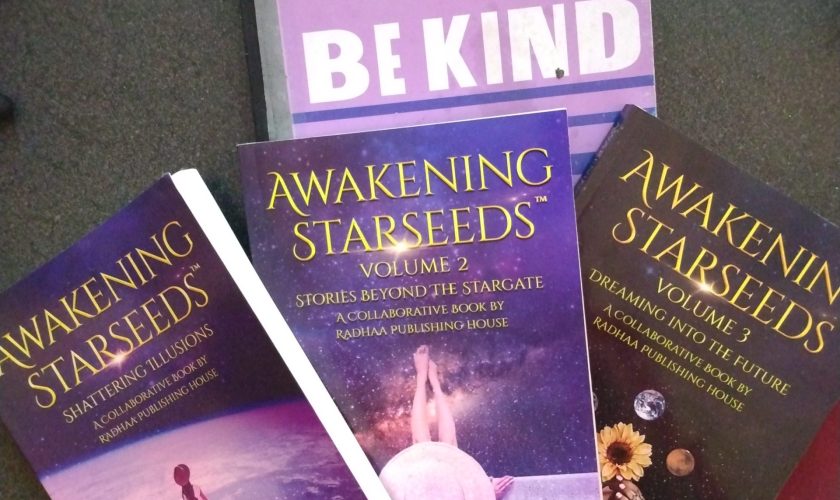Left, right. We used to just walk and talk. It's all messed up lately. The left is a losing label. It can mean left behind,…
Alternatives to the War on Drugs (2002)
Thirty years ago as a young student minister in Michigan I preached against our government’s persecution and prohibition of drugs. In the back of the room the local police and prosecutors sat, glowering. In the front, in the pulpit, I rolled what appeared to be a joint. However, because marijuana was illegal, I had to use imaginary marijuana, relying only on the placebo effect for our shared spiritual experience. I toked it up, held my breath, and passed it around as a communion. Most people took a toke on the invisible joint, but others merely passed it on. Some wouldn’t even touch it. I don’t think the police tried it.
I thought then that surely the American people would see the sense of decriminalizing marijuana. It would take its place along side of alcohol at parties and would be the optional herb in people’s gardens. It was, after all, a mild drug with a five thousand year history of being favored by spiritual teachers, musicians and workers. It didn’t have medical drawbacks or anti-social consequences. Smokers tend to appreciate aesthetics, listen or dance to music, either get laid back or energized (it effects people differently), talk philosophy, eat sweets and giggle. I remember playing John Prine’s song, “Illegal Smile:” “Well, I just went and put on an illegal smile It don’t cost very much and it lasts a long while Won’t you please tell the man I didn’t kill any one I’m just trying to have me some fun.”
Little did I realize having fun is sin to the conservative puritan mindset and how it would be demonized like in a witch hunt. Little did I realize how horrible the drug situation would become and how our government helped make it all the worse. I pictured people being able to grow and give pot as a free sacred gift from nature to be shared among friends. I pictured also being able to buy it at stores, paying taxes on it that would fund various worthy causes. I pictured people also being able to take enthiogens (in-God-generate) what amounts to sacraments (such drugs as L.S.D., Mescaline and the like) on special occasions in protective settings, such as church events, retreat centers, and therapeutic centers.
I assumed people would prefer these drug options to those other enjoyable but problematic drugs like illegal heroin and legal valium. I’m not glad about the problematic drugs, but they’re not the problem they’re said to be, and that problem is made all the worse by our government’s bull-headed backwardness towards drugs.
If we consider drugs to be any substance people deliberately take to alter their mind or mood it would include everything from tobacco to alcohol and other legal drugs and it would include illegal drugs. By persecuting some of these drugs our government has created a monster. At the turn of the last century the addictive drugs were available in soda pop and at drug stores. Only Mexicans and black jazz musicians smoked marijuana when the government started publicizing it as an exotic narcotic that made people have wild sex and go on murder sprees. Not mentioned was that powerful lumber, cotton, fuel and synthetic industries wanted to eliminate hemp as a product so that their other materials would have to be used. The very plant that George Washington promoted was slandered and rendered illegal. When it became popular in the 60’s the deliberate misinformation continued, as did the harsh and illogical persecution. As its price rose, so did criminal profits, and along with them, the marketing of imported addictive substances like heroin and cocaine.
Given reliable education and free choice people tend to pick substances that they enjoy but which don’t ruin their lives. In parts of the world that have access to various intoxicants, indigenous people tend to the mild form of them. In South America natives chew cocaine leaves. In East Asia, they boil the poppies as tea or maybe simmer them into opium. But in neither place do the people in general get lost in the rarified forms of crack or heroin and the resultant addictions. We could drink Everclear till we puke, but we tend to choose a glass of wine instead.
Sadly, I watched the Counter Culture lose its purity and wander into all manner of problematic drugs. When speed came along, it wasn’t the government’s policing which changed that bad habit, it was the drug culture’s own realization and slogan “Speed Kills” that changed people. But then they went into heroin and downers and Cocaine, which morphed into Crack, and sniffed glue and huffed gasoline and migrated lately back to speed, called Meth. It gave credence to the so-called “gateway” theory, the plausible notion that if one high was good, a stronger one was better. Many people who got caught up in addictive and problematic substances had earlier smoked pot, hence, the gateway.
Missing from this logic is that they predominantly and typically don’t. Some 70 million Americans have smoked pot, while less than half a million use heroin. That’s a 140 to 1 ratio clearly indicating most don’t go on to harder drugs. In fact, if it is a gateway, it is a gate that swings two ways. Given the option and inexpensive availability, many heroin, cocaine, speed and alcohol addicts get off their habit by using pot. The gate may lead away, but can lead back. Moreover, the gateway phenomena is made worse by the prohibition against pot, for it drives the price up and puts its users in contact with pushers who would rather sell addictive drugs. What could and should be grown inexpensively and locally is instead repressed, and in its stead addictive and socially disruptive drugs are imported in a vast lucrative industry of criminal organizations and hypocritical corrupt governments. Thus, mere smiles and giggles became medical, social, and constitutional nightmares. Talk about gateways!
There are few venues in which to consider such confused and contentious issues. The American public has been propagandized to ignore its problems with the drugs alcohol and nicotine while being told all illegal drugs are about the same and that they’re the next thing to the devil. I’m proud that my own small liberal denomination, the Unitarian Universalist Association, has repeatedly called for an inclusive and intelligent reconsideration of these issues. A sub-group, UU’s for Drug Policy Reform, working from earlier nationally-agreed calls for study, reflection and action, asks that our congregations vote this June on an Alternatives to the War on Drugs Statement of Conscience. In it, they make the helpful distinction between drug use, drug abuse, and drug addiction. They state, “drug use is erroneously perceived as drug abuse, behavior that is out of control and harmful to others,” but that, “using a drug does not necessarily mean abusing the drug, much less addiction to it. They go on to say, “we do not believe that drug use should be considered criminal behavior.”
The distinction is a good one. Go on line to search the research on this issue. You’ll find ample categories labeled “drug abuse” but few to none as “drug use.” The presumption inherent in the category is that any use is abuse. Consider also that reports of trouble with drugs comes from police and counselors, who deal with troubled people, but there is no mechanism to invite or report stories and statistics of those who use drugs without either abusing them or being addicted. While the draft statement does call for the usual switch to therapeutic remedy for abuse and addiction, it does not clearly affirm the right of people’s personal use. Yes, there are people who need medical or psychological help, but not all use is abuse. I think we should be able to use many simply because we want to.
A counterpart is clearly understood in alcohol. Alcohol kills some 23,000 Americans a year from the poisoning and diseases it creates, a similar amount from related auto wrecks, and another similar amount contributing to our country’s suicides. We all know how alcohol abuse can injure families and society. But we also know all alcohol use is not alcohol abuse. Your glass of wine at dinner isn’t the same thing as chugging a quart of whisky. Use is not abuse, and does not warrant police surveillance, doors bashed down, guns pointed at your head, assets confiscated, charges leveled, expenses incurred, prison terms imposed, rights denied, and reputation ruined. Yet, the assumption is any use is abuse if it involves illegal drugs.
Far more people die yearly from legal drugs than illegal. Tobacco kills about 400,000. Alcohol, 45,000. Between 14,000 and 140,000 die a year from prescription medicines. How many people die from marijuana? None. None ever in history has been reported. More people smoke marijuana than use all the other illegal drugs combined. It leads to no deaths and contributes to no serious social harms (as does alcohol and meth), yet accounts for 1/4th of our country’s inmates, more than for murder, rape, robbery and assault combined.
The War on Drugs advocates consistently conflate marijuana’s mild effects into whatever dire statistics they can assemble, but do not distinguish which drugs do what, nor which the police and DEA prosecute. They act like all “drugs” are the same. In Oregon in 1999 some 300 deaths were related to heroin, cocaine and meth, while none were related to pot, yet the news called them “drug-related.” Marijuana is easily sniffed by dogs or found in the urine of a smoker, sometimes weeks later, so it’s easy to detect and catch. Police can appear successful in the “War on Drugs” by catching pot smokers and growers while using the problems of other drugs as their rationale. Peaceful hippies go to jail; pernicious crime organizations continue to profit from far more dangerous drugs.
Like most wars, the War on Drugs costs an enormous amount of money, injures the innocent, overpowers legal protections, and lays waste to rationality and truth. It alienates people from each other, their schools and their police. It creates a police state, where the federal government arbitrarily declares which drugs it won’t allow, over-rides long-established constitutional protections, more than doubles its prison system, and presumes to override state law and citizen privacy. This adds to whatever problems there are in drugs and ruins its own credibility. Instead of being able to rely on its advice, teens and adults have learned to disbelieve their one-note song – that all drugs are equally bad. Kids learn that pot isn’t the devil it is said to be. They go on to conclude the government lies about other drugs too. Soon they’re huffing paint or glue, thinking they’re as innocuous as pot. They’re not. They grow up seeing their government repress both the truth and the people. The people, the law, the truth, faith in freedom, our constitutional rights – everything American is defiled. This is a war on its own people, traditions and constitution. It’s a cultural war.
Richard Nixon, G. Gordon Liddy, Ed Meese, Ronald Reagan, and William Bennet all waged an ever-escalating war on those they deemed the enemy – largely, the counterculture and blacks. Despite Nixon’s own commission, which recommended de-crimilization of marijuana, Nixon increased the laws, took control from the Department of Health, Education and Welfare and delivered it to his own Czar, brought in the CIA and created the DEA. Reagan allowed his Justice Department to expand RICO laws to permit police agencies to confiscate property affiliated with drug possession, funding the police industry like a modern day Sheriff of Nottingham. He had his wife urge Americans to an “outspoken intolerance.” She declared causal users were “accomplice[s] to murder.” William Bennet instituted a “Zero Tolerance” policy for the country’s schools. He claimed the drug problem, “comes from this tradition of freedom and liberty,” and that beheading drug dealers was “morally plausible” if “legally difficult.” Darell Gates, founder of DARE and Chief of Police of the LAPD, declared to Congress, “casual drug users should be taken out and shot.” Mandatory Minimums stuffed our jails and created scores of new ones, placing non-violent drug users in for longer than robbers and rapists, leaving them resentful and connected.
Of course, this war is very costly, to the government and its victims alike. Our federal prison system has nearly tripled, our police must harass people they know are not destructive socially, and our courts are clogged with thousands of otherwise peaceful, law-abiding citizens. Is this the best way to address people’s propensity to use intoxicants and explore consciousness alteration?
Years after that first sermon, I’ve watched our country make worse decisions after bad ones. Lies are repeated, broadcast even on broadside barrages of propaganda where all TV stations show the same silly show. Schools teach, not fair investigation of the facts and critical thinking, but obedience to authority. People such as you, who ought to have a right to take what you want as long as it doesn’t injure others, are denied that option. Substances that have for eons been considered sacred sacraments, such as marijuana, peyote and mushrooms, are put in the same toilet as the addictive and problematic drugs. “Life, liberty and the pursuit of happiness” has been denied to all on the whim of a few, riling the fears of the many, ruining fair relations for all.
So, yes, I urge you to consider voting for the Statement of Conscience calling for Alternatives to the War on Drugs. I agree with Francis Burford, UU of the First UU Church of Houston, that the War on Drugs “violates every one of our seven principles.” Were it legal, I’d share some of these drugs with you in what ought to be our free and protected prerogative. This statement of conscience is one small step you can take to help sway the momentum away from a war on culture and towards a rational, compassionate, and creative solution for all. An alternative would have been my being able to use an actual joint in that church service thirty years ago. As part of a “drug awareness campaign” I’d share some with those police, let them have a real toke, engage in some funny banter and, yes, giggle together. An alternative is to have faith in freedom, to respect the persistent opinion of three or four generations of Americans who have all called for a more liberal, rational and less crime-ridden approach. An alternative is to undercut the enormous world-wide dominance of the crime syndicates and begin investing in health, education and welfare again.
Instead, we went into a war against our own people, with some wagging the finger of shame on others, even though they had no idea what it was they were talking about. In the Reagan era, spending for education did go up some 70%. However, spending for police and prisons went up some 600%. In 1984 Michigan spent less than 3% of its budget on prisons and 37% on schools; in 1988 the prisons jumped up to over 7%, while education fell to 30%. In two hundred years Congress had passed only 58 mandatory minimum laws; in 1986 it passed 26 having to do with drugs. Over 25% of the prisoners in federal prisons are there for marijuana. It’s costing us upwards of $50 billion a year.
So I would propose an alternative approach. Legalize marijuana. Doing that alone would decrease the number of drug offenders in our country by 90%. We should jail people only for crimes against persons and property, not their internal states. Provide treatment for addicts and drug abusers. Institute realistic, reliable drug education programs, alerting people to real dangers and avenues to of alternative change. Distribute the more problematic drugs via pharmacy, undercutting the street price in all cases. Tax marijuana if you want, but also allow people to grow and give it. Provide avenues for the deliberate and safe experimentation and spiritual practice of the enthiogens.
If the U.S. can’t or won’t initiate these changes, Oregon should. Let Oregon continue its populist tradition of going its own way. It would be a boon to the housing industry, the convention industry, and the chocolate chip cookie industry. Oregon could be one place in this country (founded by hemp growers and smokers, you remember, the revolutionaries who proclaimed we are endowed by Creation with the right to “life, liberty, and the pursuit of happiness”) where that would be a living, re-legalized reality.
Reverend Brad Carrier
For the UU’s of Grants Pass and Central Oregon
© May, 5 & 12, 2002
Subscribe
0 Comments







